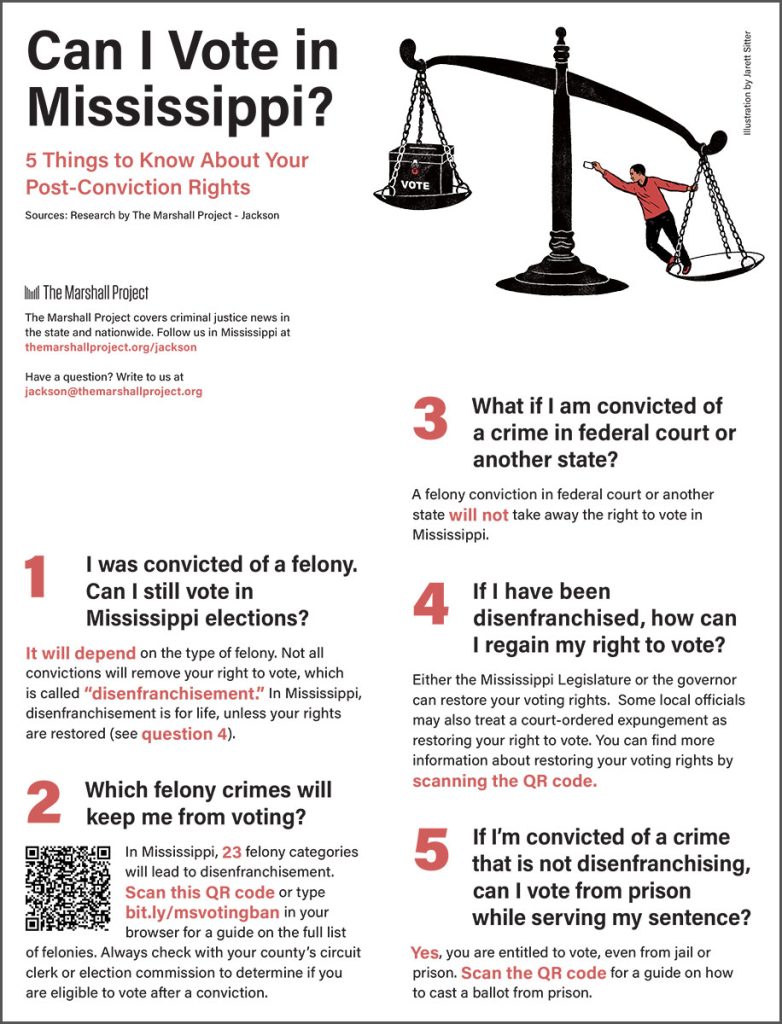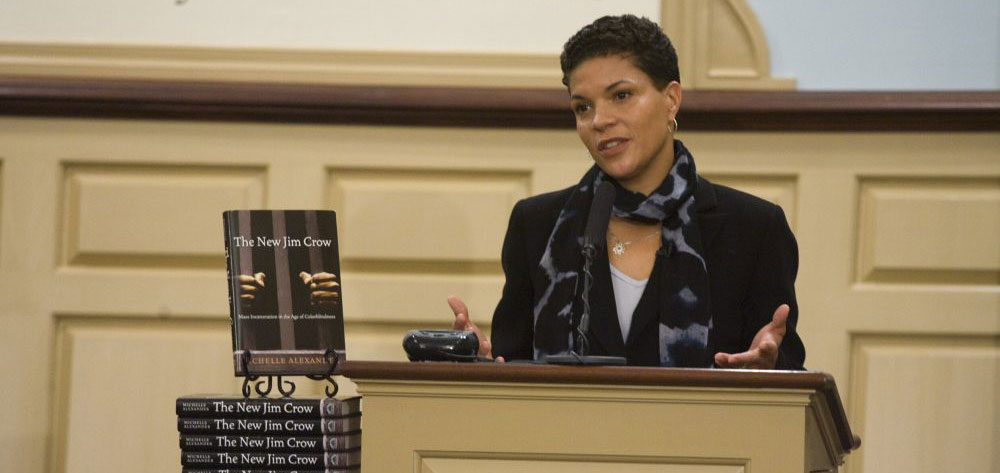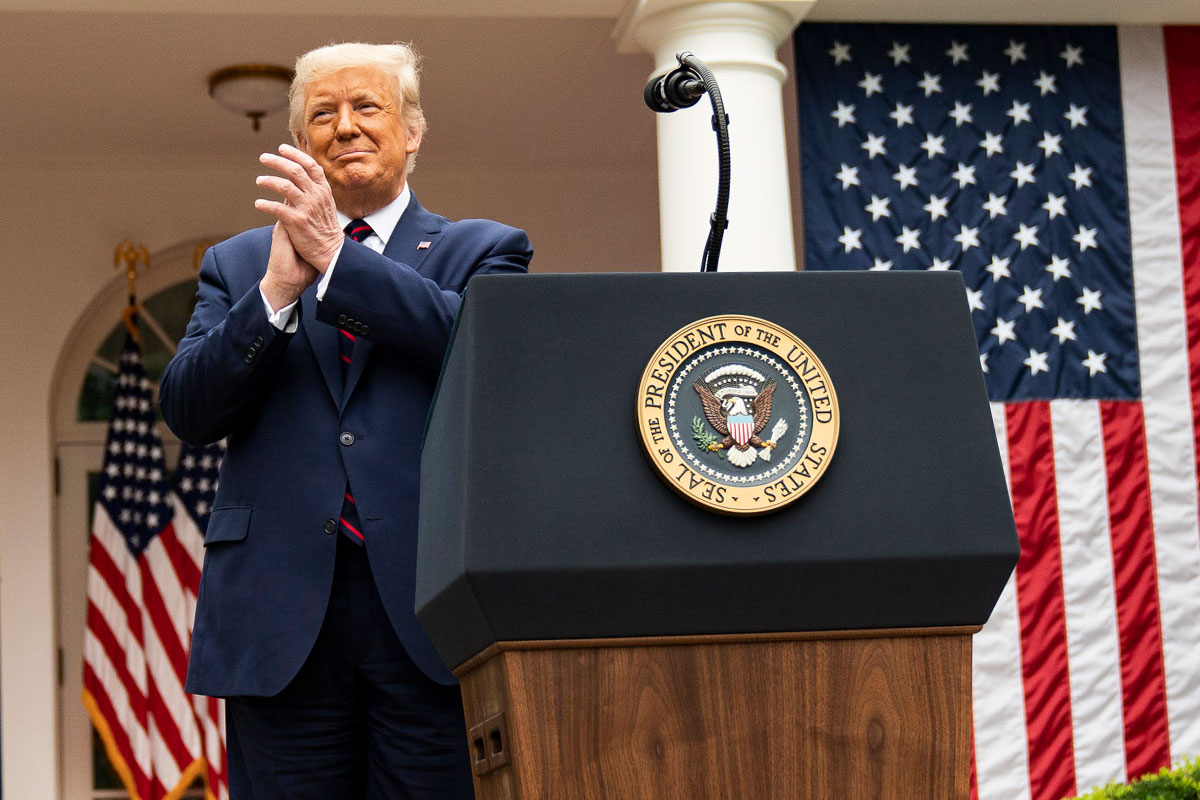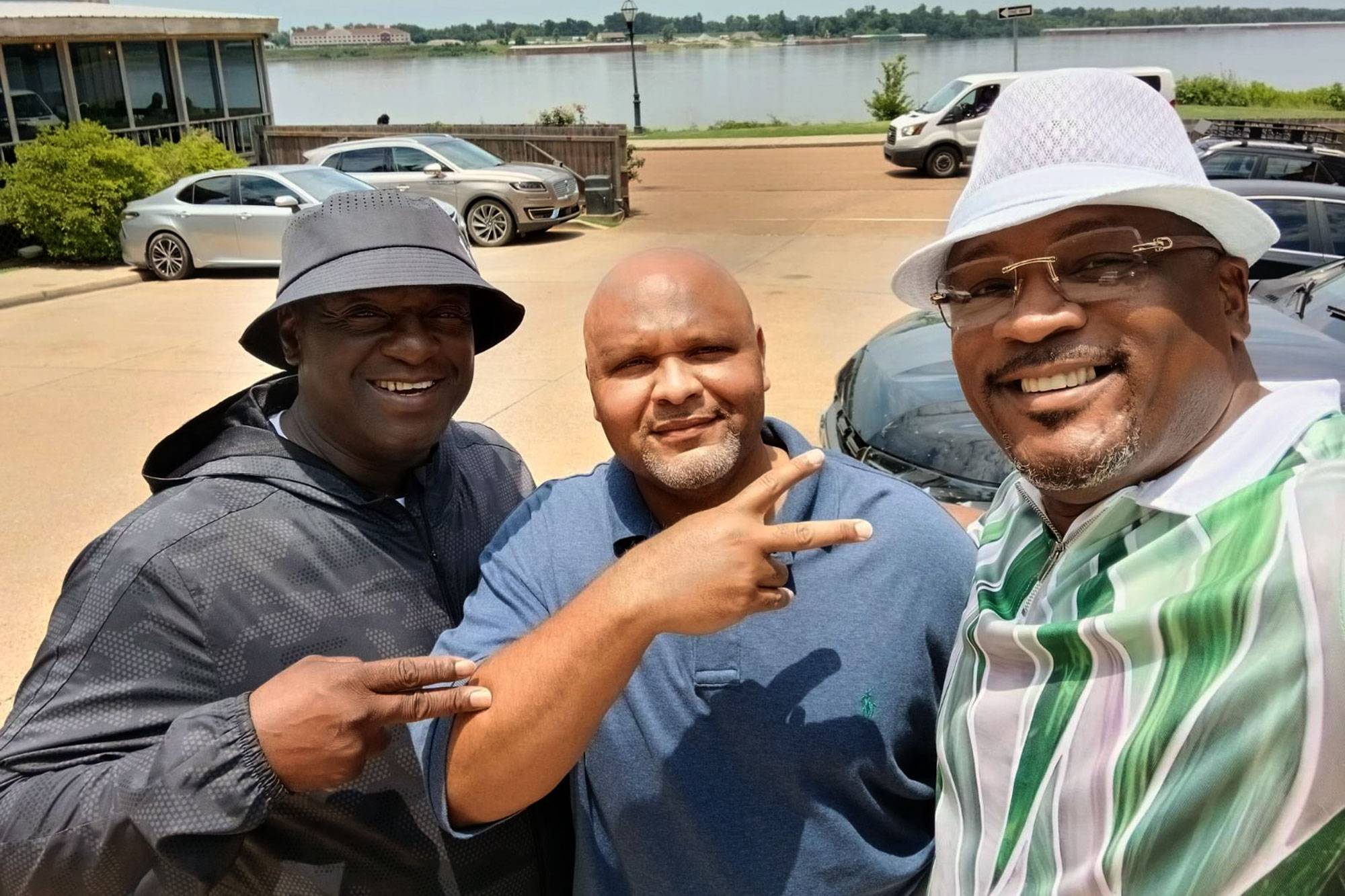By Kaitlyn Poole
JACKSON, Miss.—Joseph Holiday has lived in Jackson, Miss., since being released from prison in January 2022. While incarcerated in 2019, he founded an organization called Taking and Bringing Back Youth of New Orleans. After his release, he opened a community center for at-risk youth.

He served the time—and even changed his life and is trying to help other young people avoid crime—but he still does not have the right to vote because he was convicted of a violent crime on a list of offenses that takes away the right to vote forever in Mississippi.
“Taking a person’s voting rights after they’ve been released from incarceration is basically like a double jeopardy,” Holiday said in an interview with the Youth Media Project. “Because I’ve served the time, I’ve met all the requirements to come back into society. I’m a working-class citizen, I pay taxes like everyone else, I’m doing everything that’s required of every other citizen to do—but still I don’t have the opportunity of the right to vote.”
Imagine people who look like you and have fought for your right to vote—but because of a mistake years ago, it is all taken away. For millions of people in the United States, those rights are tripped away due to a felony conviction, creating an often-overlooked injustice.
Mississippi has the third-highest number of Black citizens who are denied the right to vote: 130,500 Black Mississippians—or 16% of that voting-age population—are unable to exercise their right to vote.
Felony Law Targets Black People
What if I told you the list of crimes that lead to disenfranchisement are aimed at people of color and that this is a type of racial discrimination?
Drug offenses are a major factor, with African Americans being more likely to be convicted due to disparities in policing and sentencing. Nonviolent offenses such as check fraud or other financial crimes disproportionately impact people of color, which results in disenfranchisement. Gang-related activities can also lead to felony charges for people of color, although Mississippi also has high numbers of white gang members.

Such disparities in laws and enforcement is a continuation of racism, Michelle Alexander stated in “The New Jim Crow,” her bestselling book on discriminatory mass incarceration.
“Today it is perfectly legal to discriminate against criminals in nearly all the ways that it is legal to discriminate against criminals in nearly all the ways that it was once legal to discriminate against African Americans,” she wrote.
Consider the following facts about felony voting laws:
- Disenfranchising felons is a form of inequality. Many felons come from marginalized communities that are already overlooked in the political system. By not allowing them to vote, we are also silencing these communities. This is especially concerning considering the historic and systemic biases in the criminal justice system disproportionately impact people of color.
- Denying felons the right to vote undermines the principles of rehabilitation. When individuals serve their time and fulfill their legal obligations, they should be reintroduced into society as responsible citizens just as people are after serving time for the crimes that do not take away the right to vote. Voting is a critical part of this process, fostering a sense of belonging and civic duty. Without this right, felons are left feeling disadvantaged and disenfranchised, which can hinder their successful rehabilitation.
- The practice of felony disenfranchisement is inconsistent with the democratic values of representation. On July 18, 2024, the full 5th U.S. Circuit Court of Appeals overturned a three-judge panel’s earlier, well-reasoned decision declaring Mississippi’s lifetime felony voting ban unconstitutional cruel and unusual punishment. In doing so, the court allows Mississippi to continue with its history of disproportionately targeting Black citizens to lose their right to vote.
Other states have reformed laws that kept felons from voting, including Florida, Virginia, Kentucky and Iowa. In 2018, Florida approved Amendment 4, which restored voting rights to most felons who have completed their sentences, excluding those convicted of murder or sexual offenses.
The Broader Societal Impact Matters
When felons are disenfranchised, it doesn’t just affect individuals, but it impacts their families and communities. Children of disenfranchised parents may grow up feeling disconnected from the political process, creating a cycle of disengagement and disenfranchisement.

The case of Donald Trump, who has been indicted for 34 felonies and is still allowed to run for president, highlights the inconsistencies in how disenfranchisement laws are applied. His ability to run for the highest office in the land while other felons who have served their time cannot vote either for or against him contrasts sharply with the experiences of many ordinary citizens who lose their voting rights for committing lesser crimes.
Denying felons the right to vote is unfair because it perpetuates inequality, hinders rehabilitation, contradicts democratic values and has far-reaching negative effects on society. To build a truly inclusive and just democracy, it’s essential to ensure that all citizens, regardless of their past, have the opportunity to participate in the electoral process.
Kaitlyn Poole is a 2024 Youth Media Project student who attends Highland Bluff High School. You can read more about Kaitlyn here.

